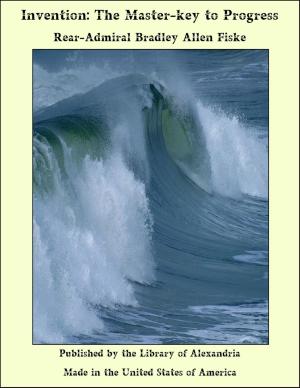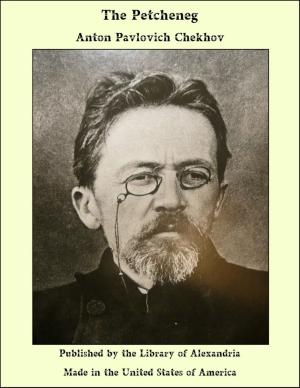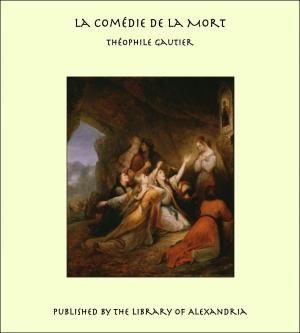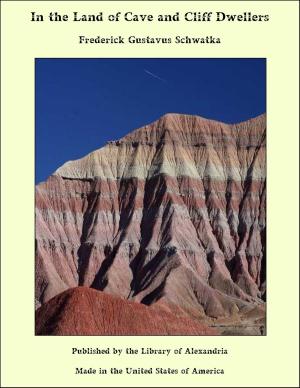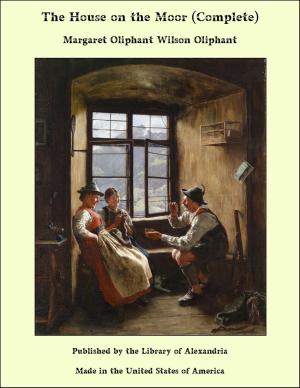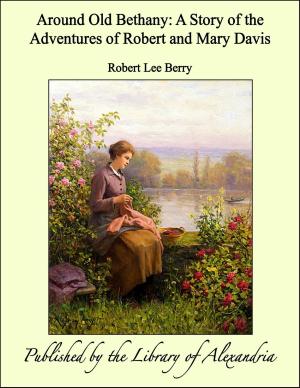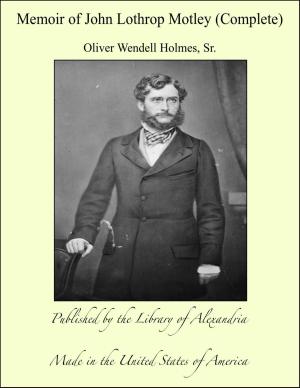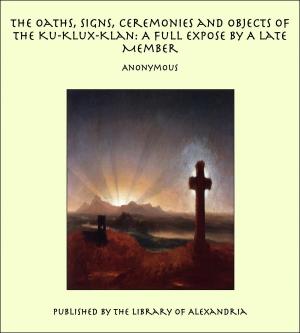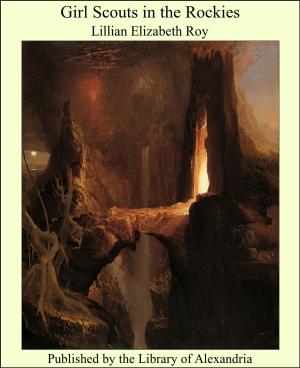The Mistress of Bonaventure
Nonfiction, Religion & Spirituality, New Age, History, Fiction & Literature| Author: | Harold Bindloss | ISBN: | 9781465514264 |
| Publisher: | Library of Alexandria | Publication: | March 8, 2015 |
| Imprint: | Language: | English |
| Author: | Harold Bindloss |
| ISBN: | 9781465514264 |
| Publisher: | Library of Alexandria |
| Publication: | March 8, 2015 |
| Imprint: | |
| Language: | English |
THE SWEETWATER FORD After relaxing its iron grip a little so that we hoped for spring, winter had once more closed down on the broad Canadian prairie, and the lonely outpost was swept by icy draughts, when, one bitter night, Sergeant Mackay, laying down his pipe, thrust fresh billets into the crackling stove. It already glowed with a dull redness, and the light that beat out through its opened front glinted upon the carbines, belts, and stirrups hung about the rough log walls. "'Tis for the rebuking of evildoers an' the keeping of the peace we're sent here to patrol the wilderness, an' if we're frozen stiff in the saddle 'tis no more than our duty," said the sergeant, while his eyes twinkled whimsically. "But a man with lands an' cattle shows a distressful want o' judgment by sleeping in a snow bank when he might be sitting snug in a club at Montreal. 'Tis a matter o' wonder to me that ye are whiles so deficient in common sense, Rancher Ormesby. Still, I'm no' denying ye showed a little when ye brought that whisky. 'Tis allowable to interpret the regulations with discretion in bitter weather—an' here's a safe ride to ye!" A brighter beam that shot out called up the speaker's rugged face and gaunt figure from the shadows. Although his lean, hard fingers closed somewhat affectionately on a flask instead of on the bridle or carbine they were used to, his profession was stamped on him, for Allan Mackay was as fine a sample of non-commissioned cavalry officer as ever patrolled the desolate marches of Western Canada—which implies a good deal to those who know the Northwest troopers. He was also, as I knew, a man acquainted with sorrow, who united the shrewdness of Solomon with a childish simplicity and hid beneath his grim exterior a vein of eccentric chivalry which on occasion led him into trouble. The blaze Further touched the face of a young English lad sitting in a corner of the room. "Some of us were sent here for our sins, and some came for our health when the temperature of our birthplaces grew a trifle high," he said. "I don't know that anybody except Rancher Ormesby ever rode with us for pleasure. Yet I'm open to admit the life has its compensations; and Sergeant Mackay has given me many as good a run as I ever had with—that is, I mean any man who must earn his bread might well find work he would take less kindly to
THE SWEETWATER FORD After relaxing its iron grip a little so that we hoped for spring, winter had once more closed down on the broad Canadian prairie, and the lonely outpost was swept by icy draughts, when, one bitter night, Sergeant Mackay, laying down his pipe, thrust fresh billets into the crackling stove. It already glowed with a dull redness, and the light that beat out through its opened front glinted upon the carbines, belts, and stirrups hung about the rough log walls. "'Tis for the rebuking of evildoers an' the keeping of the peace we're sent here to patrol the wilderness, an' if we're frozen stiff in the saddle 'tis no more than our duty," said the sergeant, while his eyes twinkled whimsically. "But a man with lands an' cattle shows a distressful want o' judgment by sleeping in a snow bank when he might be sitting snug in a club at Montreal. 'Tis a matter o' wonder to me that ye are whiles so deficient in common sense, Rancher Ormesby. Still, I'm no' denying ye showed a little when ye brought that whisky. 'Tis allowable to interpret the regulations with discretion in bitter weather—an' here's a safe ride to ye!" A brighter beam that shot out called up the speaker's rugged face and gaunt figure from the shadows. Although his lean, hard fingers closed somewhat affectionately on a flask instead of on the bridle or carbine they were used to, his profession was stamped on him, for Allan Mackay was as fine a sample of non-commissioned cavalry officer as ever patrolled the desolate marches of Western Canada—which implies a good deal to those who know the Northwest troopers. He was also, as I knew, a man acquainted with sorrow, who united the shrewdness of Solomon with a childish simplicity and hid beneath his grim exterior a vein of eccentric chivalry which on occasion led him into trouble. The blaze Further touched the face of a young English lad sitting in a corner of the room. "Some of us were sent here for our sins, and some came for our health when the temperature of our birthplaces grew a trifle high," he said. "I don't know that anybody except Rancher Ormesby ever rode with us for pleasure. Yet I'm open to admit the life has its compensations; and Sergeant Mackay has given me many as good a run as I ever had with—that is, I mean any man who must earn his bread might well find work he would take less kindly to



